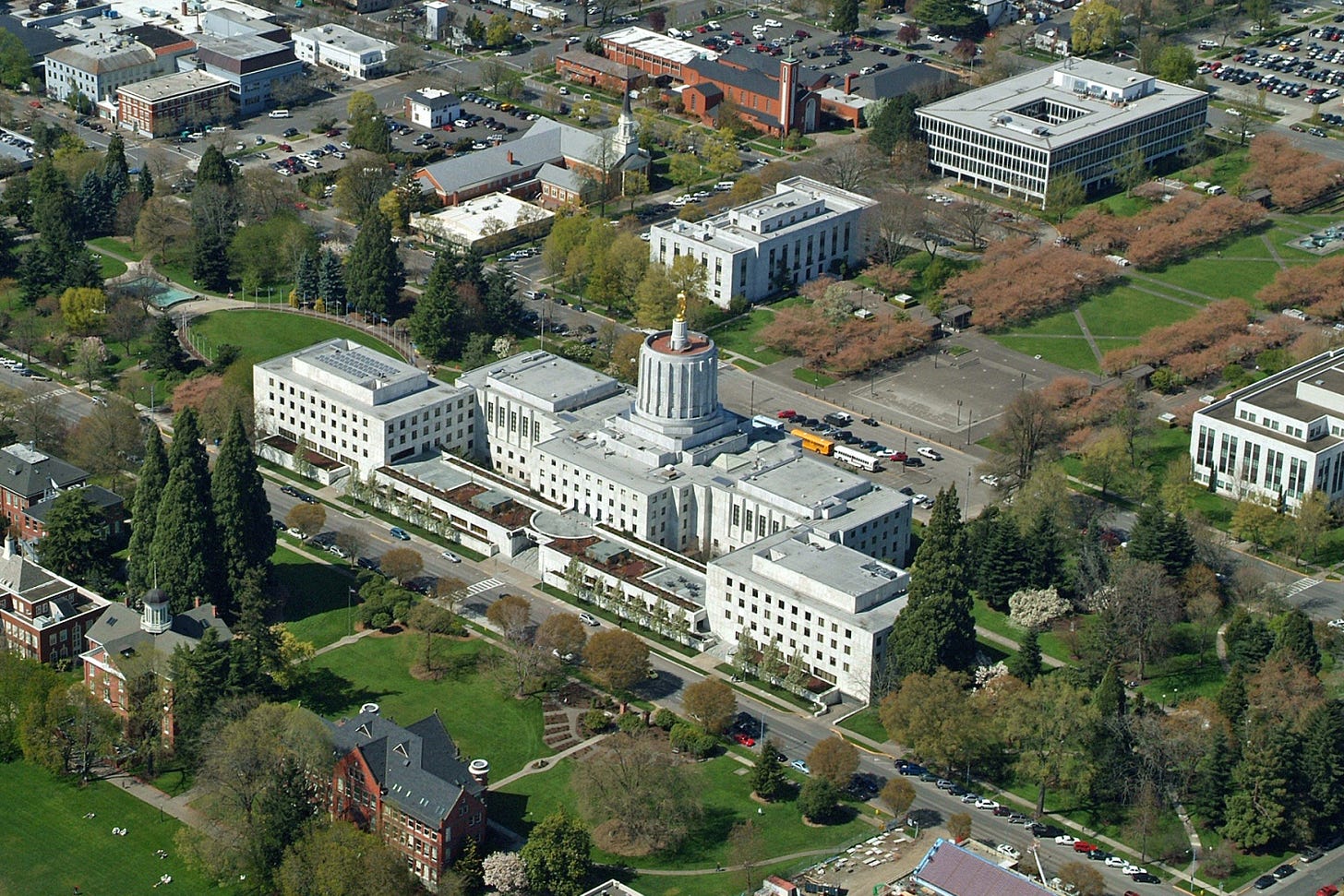Legislative Democrats yesterday unveiled the newest version of a $1 billion, at least, per year tax hike bill they say will help maintain highways and finish big ticket projects but has scant accountability requirements for the state’s troubled Department of Transportation. The massive bill, introduced less than three weeks before the legislature is required to close its session, hikes gas taxes by 15 cents per gallon and increases the state’s vehicle sales tax, registration fees and other costs associated with transporting oneself and one’s goods in Oregon.
The various iterations of the tax hike have been hounded throughout the legislative session by concerns over the Oregon Department of Transportation use of past billions of taxpayer dollars entrusted to it by the legislature. For example, ODOT mistakenly budgeted $1.1 billion in federal reimbursements in the 2023-2025 that it has not actually received.
A tour de force investigative report this spring by Anastasia Mason of Salem’s Statesman-Journal found ODOT could not explain how it spent between $123 million and $173 million of revenue awarded it the last time the legislative increased gas taxes via the bill HB 2017, in the 2017 legislative session; had only spent $1.3 billion out of the $5.8 billion allocated to it in the 2017 bill; and failed to meet cost-benefit reporting requirements in the bill and “shared inconsistent figures and out-of-date information with the public.”
Democrats rushed to assure the public they took concerns about ODOT accountability seriously as they pursued their top legislative priority of raising taxes to give ODOT more money. They ordered consultants to conduct a management review of ODOT, the findings of which echo the problems identified by the Statesman-Journal, blaming ODOT’s failures in part on “expanded revenue through House Bill 2017.”
In response to the management review, Senate President Rob Wagner (D-Lake Oswego) told Oregon Public Broadcasting last month, “ODOT accountability will be a key component of this package so we can ensure that taxpayer money is being spent wisely and efficiently and major projects get completed on time and within budget.”
The current tax hike bill’s sponsors point to two ODOT accountability provisions in the bill. The first is the requirement that ODOT conduct a performance audit every two years regarding the “responsible use of moneys in the State Highway Fund” and annual audits of “capital projects carried out” by it. The bill orders the legislative policy office to engage a consultant to conduct another performance audit and progress toward implementing the changes suggested in the recent-completed management review.
ODOT already has both internal and external audit programs, which have helped identify the agency’s past failures. It is unclear from the bill how the new audit requirements differ from the existing audit requirements, or how the new audit requirements will deliver fixes to the agency’s failures past audits have failed to deliver. Audits are by nature past-looking reviews that make recommendations to the legislature and ODOT to improve ODOT’s operations. Audits do not and cannot on their own deliver accountability for the failings they identify.
The co-sponsors of the tax hike bill and co-chairs of the Joint Transportation Reinvestment Committee, Senator Chris Gorsek (D-Gresham) and Representative Susan McLain (D-Forest Grove) did not response to my request for comment this morning on whether and why they believe the new audit requirements will do the trick when existing audits have not.
The other supporter-described accountability measure in the bill is to give the Governor direct appointment and firing authority over the ODOT director. Currently, that authority is held by the Oregon Transportation Commission, a citizen committee appointed by the Governor.
A leading Republican on transportation issues, Representative Shelly Boshart Davis (Albany) told me she does not believe anything in the tax hike bill will improve ODOT accountability.
“I only have to point to the accountability workgroup and measures placed into [HB] 2017 that didn’t work then,” Boshart Davis wrote in a text message. “There’s no reason to believe that ‘accountability measures’ will work now.”
The total amount of revenue to be raised by the tax hike bill is uncertain, because the bill omits the amount the bill will hike the weight-mile tax truckers pay instead of gas tax. In a hearing last night, Chair Gorsek, however, admitted under Republican questioning the amount of tax and fee increases on Oregonians will be at least $1 billion.
The bill, HB 2025, is scheduled for another hearing before the Joint Transportation Reinvestment Committee at 5 pm today. Democrats hold a supermajority in both houses of the legislature, which allows them to pass tax increases without any Republican votes, so long as all Democrats are present and vote in favor.
Representative Hoa Nguyen, (D-Portland) has been absent from votes this session as she receives treatment for cancer, leaving prospects for the bill uncertain, especially in that chamber.





I was not surprised to discover Oregon ranks second in government spending per capita. Higher than CA, higher than NY.
I believe the primary purpose of the Oregon legislature is to drive all working families out of this state, and their secondary purpose is to extract as much money as possible from working families until they take the hint.
Fraud and waste do not register as concepts to the Oregon democrat, which is why these arguments are wasted on them. It doesn’t matter if the government gets little or nothing for the dollar, it only matters that the dollar was transferred from the taxpayer to the friends, family, and allies of Oregon democrats.
It sounds like $1B in PERS funding and a consulting gig for a Democrat donor to me.